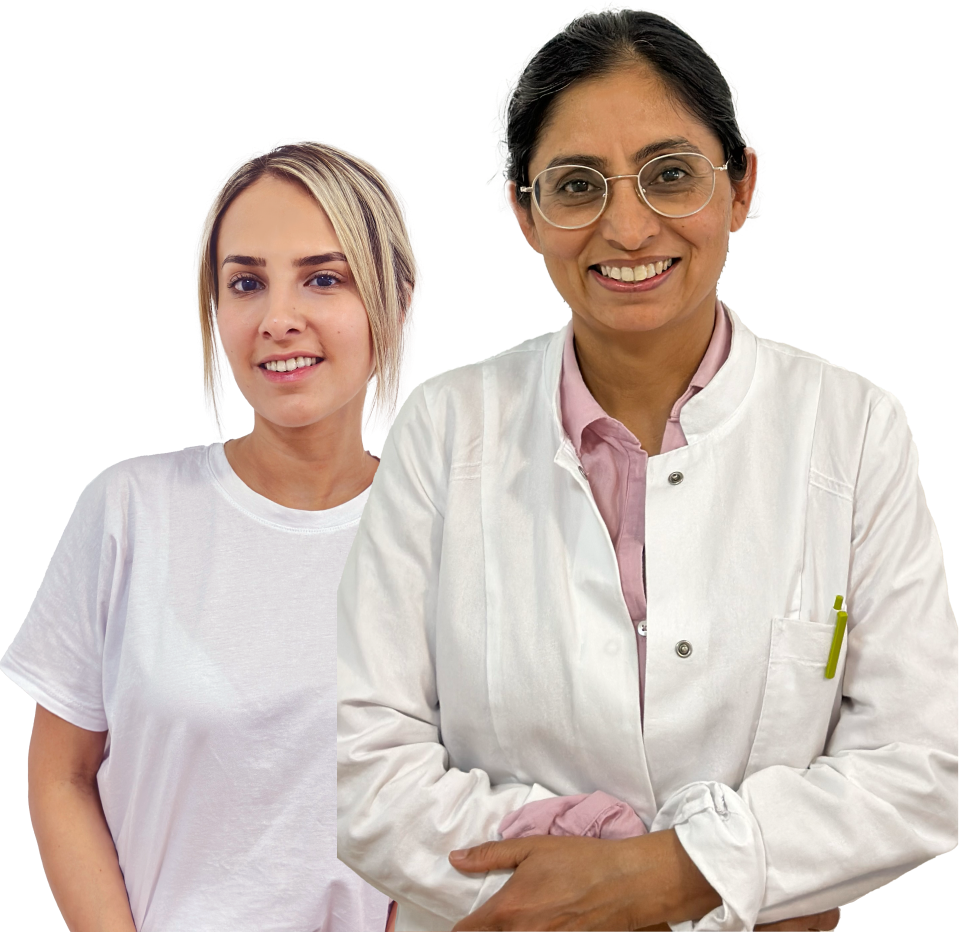Vaccinations
Strengthen your health with vaccinations - your personal shield against disease. We offer customised immunisation schedules to give you and your community the best possible protection. Safety through prevention - take the first step today.
The importance of vaccinations
Vaccinations are an essential component of preventive medicine and play a central role in maintaining health and well-being. They provide safe and effective protection against a range of serious and potentially life-threatening diseases. Vaccinations are important not only for individual health, but also for the health of the whole population, as they contribute to herd immunity and help prevent the spread of infectious diseases.


Our approach to vaccination
Our approach to vaccination is patient-centred and based on the latest recommendations and guidelines from health authorities. We recognise that every patient is unique and that vaccination needs may depend on a number of factors, including age, health status and lifestyle. Therefore, we offer individual immunisation schedules tailored to each patient's specific needs. Our aim is to inform you about the importance of vaccinations, address any concerns or fears you may have and support you in your decision-making process.
Our vaccination offer
We offer a wide range of vaccinations, including vaccinations against influenza-like diseases, measles, mumps, rubella, pneumococcus, meningococcus, hepatitis, tetanus, diphtheria, pertussis and human papillomavirus (HPV). We also offer travel vaccinations for patients travelling to countries where certain diseases are common. Our medical professionals are experienced in administering vaccinations and will ensure that your vaccinations are administered in a safe and comfortable manner.

Frequently asked questions
Our practice focuses on your health and well-being.

Which vaccinations are particularly important for women?
Some of the most important vaccinations for women are the HPV vaccination, which protects against certain types of cervical cancer, and the MMR vaccination, which covers measles, mumps and rubella. It is also important to get vaccinated against flu and tetanus, and in some cases other vaccinations may be recommended.
Up to what age should I receive the HPV vaccination?
It is generally recommended to start HPV vaccination at the age of 11 to 12 years, but it can also be given to young adults up to the age of 26.
Do I need a tetanus booster vaccination?
Yes, it is recommended to have a tetanus booster vaccination every 10 years.
Am I protected immediately after a vaccination?
Not necessarily. Some vaccinations require several doses to provide full protection and it can take several weeks for immunity to build up after one vaccination.
Can I get vaccinated if I am pregnant?
Some vaccinations, such as the flu and whooping cough vaccines, are recommended during pregnancy, while others may need to be avoided for safety reasons. It is important to talk to your doctor to determine which vaccinations are safe and recommended for you during pregnancy.
What side effects can occur after vaccination?
Most side effects of vaccinations are mild and temporary, such as redness or swelling at the injection site or a slight fever. More serious side effects are rare.
Can I be vaccinated against several diseases at the same time?
Yes, it is often possible and safe to receive several vaccinations at the same time. This can be especially convenient when you are preparing for a trip or if you need to catch up on several vaccinations.
Can I get vaccinated if I am sick?
If you only have a mild illness, such as a cold, you can usually get vaccinated safely. However, if you are more seriously ill, it may be better to wait until you recover.
What is herd immunity?
Herd immunity occurs when a large part of a community is immune to a disease, which helps prevent the spread of that disease. Herd immunity especially protects those who cannot be vaccinated due to age, health conditions or other reasons.
Why are vaccinations important?
Vaccination not only protects individuals from disease, it also helps prevent the spread of infectious diseases in the community. This is especially important to protect those who cannot be vaccinated for health reasons or for whom vaccinations may not be as effective.